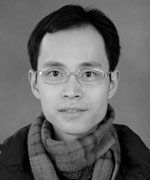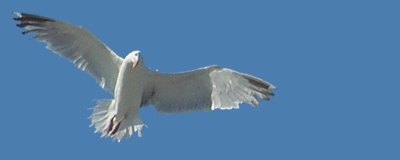
Carmen Bugan
卡门-布甘
  Carmen Bugan was born in 1970 in Romania. Her family immigrated to the US in late 1980s. Bugan studied at the University of Michigan and Balliol College, Oxford, where she obtained a PhD in English literature. Her books of poetry include Releasing the Porcelain Birds (2016), The House of Straw (2014), and Crossing the Carpathians (2005). She has also published a memoir, Burying the Typewriter: Childhood Under the Eye of the Secret Police (2012), and a critical study titled Seamus Heaney and East European Poetry in Translation: Poetics of Exile (2013). She lives in Long Island. Carmen Bugan was born in 1970 in Romania. Her family immigrated to the US in late 1980s. Bugan studied at the University of Michigan and Balliol College, Oxford, where she obtained a PhD in English literature. Her books of poetry include Releasing the Porcelain Birds (2016), The House of Straw (2014), and Crossing the Carpathians (2005). She has also published a memoir, Burying the Typewriter: Childhood Under the Eye of the Secret Police (2012), and a critical study titled Seamus Heaney and East European Poetry in Translation: Poetics of Exile (2013). She lives in Long Island.
卡门-布甘,1970年出生于罗马尼亚。布甘一家于上世纪80年代末移居美国,布甘先后求学于美国密歇根大学与英国牛津大学,获文学博士,著有诗集《释放那些瓷鸟》(2016),《稻草屋》(2014),《穿越喀尔巴阡山脉》(2005),传记《埋葬打字机:秘密警察监视下的童年》(2012)以及专著《希尼与东欧诗歌之翻译:流亡诗学》(2013),现居美国长岛。
|

|

译者
Translator
冯冬
Peter Feng
  冯冬,现居青岛,2011年从南京大学英语系获博士学位,致力于诗、哲学、精神分析的共通,译过多位美国诗人,包括司各特-琼斯诗集《别处》、《未来是一只灰色海鸥:西尔维娅-普拉斯诗全集》(上海译文出版社)。其对诗之本质陌异性的关注凝结成三本诗集:《平行舌头》、《沙漠泳者》、《残酷的乌鸦》(与孙冬合著,南京大学出版社)。原创作品刊于《诗天空》《美国诗歌评论》等海内外诗刊。 冯冬,现居青岛,2011年从南京大学英语系获博士学位,致力于诗、哲学、精神分析的共通,译过多位美国诗人,包括司各特-琼斯诗集《别处》、《未来是一只灰色海鸥:西尔维娅-普拉斯诗全集》(上海译文出版社)。其对诗之本质陌异性的关注凝结成三本诗集:《平行舌头》、《沙漠泳者》、《残酷的乌鸦》(与孙冬合著,南京大学出版社)。原创作品刊于《诗天空》《美国诗歌评论》等海内外诗刊。
Peter Feng is a poet and translator from Qingdao, China. He received a PhD in English Literature from Nanjing University in 2011, and since then he has been exploring the interconnections between poetry, philosophy, and psychoanalysis. He has translated a number of American poets, including elsewhere by Scott Alexander Jones and The Collected Poems of Sylvia Plath (Shanghai Translation Publishing House). He is the author of Parallel Tongues, The Desert Swimmer, and Cruel Raven (co-authored with Sun Dong, Nanjing University Press). His poems appear in Poetry Sky, American Poetry Review, Big Scream, Grey Sparrow, Napalm Health Spa, and others.
|
The words ‘the source informs you’ echo in my head
that other voice—familiar, comfortable almost,
lining our private cries: ‘the inmate wrote’
to his wife and children ‘from the Aiud prison’.
Our letters journeyed through the clay-like
maze of secret police desks. Stamps, checks, dates,
signatures indicate officers and places. The paraphrase
of ongoing pain—half the time they paraphrased us.
That voice in introductions sticks to our words
like a skin disease impossible to cure. But then
some sentences from us burst free perhaps because
they’re not translatable, editable, condensable.
They stand out in quotation marks and spring
at me now like unexpected heartbeats.
On 4 May 1985 my father thought about his birthday.
‘Make a cake with fifty candles and take a picture’.
I remember the cake on the table in the winter kitchen
and myself thinking about him in chains all day.
‘My dear, the children are healthy’ Mother said.
‘Come to see me with my children’ he said.
‘Do you remember me coming home with snow
on my brow?’ a letter says. ‘Children I so much miss
you, I kiss you all and your mother.’ And me:
‘How beautiful it would have been for you to have been here too!’
‘Sell everything you can’ he urged ‘send the children to school.’
‘Do not despair, I might be coming home soon’.
*
We hung onto those few words that could cross
the clay-like murky territories between us and shone faint hope.
These letters were like skin that covered
and protected our bodies from the cold outside,
each word a capillary that carried and supported
the life in each one of us. Each word was limitless,
clothed our souls and warmed against despair,
shielded us from their world of terror,
transported chills, shivers, anger, warmth
from us to Father, and back from him to us:
they took us to each other as we were.
When the censor took our words and talked about them,
discarded our handwriting and wrote his,
he became a flaying instrument.
Letters we sent were not received
(until now, thirty years on).
We, Marsyas the Satyr tied to our tree.
The Censor scraped at capillaries of our words,
what survives is howling: ‘a year has passed with no news
from you’; ‘something awful is happening to you’;
‘no one looks after us anymore, they’re all busy’;
‘Mother is ill and short tempered, even grandmother has left’;
‘it’s an indignity you have nothing to eat’.
Thirty years have gone and we have lived
with exposed wounds, doubts, fears, uncertainties.
Now I find the family letters from back then
in the midst of thousands of records.
I reconstruct the way we used to speak,
the way skin used to feel when it was still alive.
Denatured letters in the handwriting of the censor.
*
I can see capillaries under the flaying instrument,
I reconstruct parts of the skin from the words
that were copied out. We now know
what has been taken from us and how
words alone saved us then
and bring joy now, the joy of finding them,
for in their frail syllables I recognize the old self.
Apollo has cleaned his instrument and left.
|
|
“线人告发了你”这几个词在我脑子里
与另一个声音相回荡——熟悉,几乎给人安慰
连接我们私下的哭喊:“犯人从
阿尤德监狱”给他的老婆和孩子写信。
我们的信件旅行过秘密警察的
土捏迷宫似的办公桌。戳印、画押、日期
签名暗示官员和地点。持续的痛苦
被转述——一半时间我们都在被转述。
那交待的声音粘上我们的词语
如一场绝无治愈的皮肤病。然而
我们的一些句子爆发出来,也许因其
不可翻译、编辑、凝缩。
它们从引号里站立出来,如骤然
猛烈的心跳扑向我。
1985年5月4日,父亲想过生日。
“做个蛋糕,点50支蜡烛,照张相。”
我记得那蛋糕就在冬天厨房的桌上
而我则整天惦记他身披枷锁。
母亲说:“亲爱的,孩子都健康”
他说:“和孩子们一起来看我”
一封信写道:“你记得我额头上
带着雪花回家?”“孩子,我想你们,
吻你们和你们的妈妈。”我说:
“要是您能在这里该多好啊!”
他催道:“卖掉家产,送孩子去学校。”
“勿绝望,很快我即回家。”
*
我们紧紧依靠那穿越我们之间
淤泥地带的几个词。
这些信,如皮肤覆盖保护
我们的身体不受外部寒冷的侵袭,
每个词如毛细血管,支持运送
我们每个人体内的生命。词乃是无限,
包裹我们的灵魂,温暖我们不致绝望,
抵挡他们那世界的恐怖,
将寒冷,颤抖,愤怒,温暖从我们
传送至天父,再从祂送回我们:
它们将我们本真地紧紧联系。
当审查者断章取义我们的词,谈论之,
抹掉我们的笔迹,写下他自己的,
他就变成一件剥皮工具。
我们寄出的信从未抵达
(直至三十年后的今日)。
我们就是玛西亚斯,绑在树上的森林之神。
审查者刮擦我们词语的毛细血管,
只有嚎叫幸存:“一年过去了,
仍无你的音讯”;“可怕的事要降临于你”;
“无人照顾我们,他们都忙”;
“母亲病了,脾气不好,连祖母也走了”;
“你饥肠辘辘,乃是耻辱。”
三十年过去了,我们与敞开的伤口
怀疑、恐惧、心惊胆战一起生活。
现在,从成堆的记录中
我发现了那时的家信。
我重构我们曾经的说话方式,
皮肤活着时的感知方式。
以审查者笔迹写下的不自然的信。
*
剥皮工具之下,我看见了毛细血管,
我从复制打印的词语
重建一部分皮肤。现在我们知道
我们被剥夺了什么,词语
唯独词语,如何彼时拯救我们
此时又带来喜悦,重新发现它们的喜悦,
在其脆弱的音节中我发现了往日的自我。
阿波罗擦干净他的工具,离开了。
|







